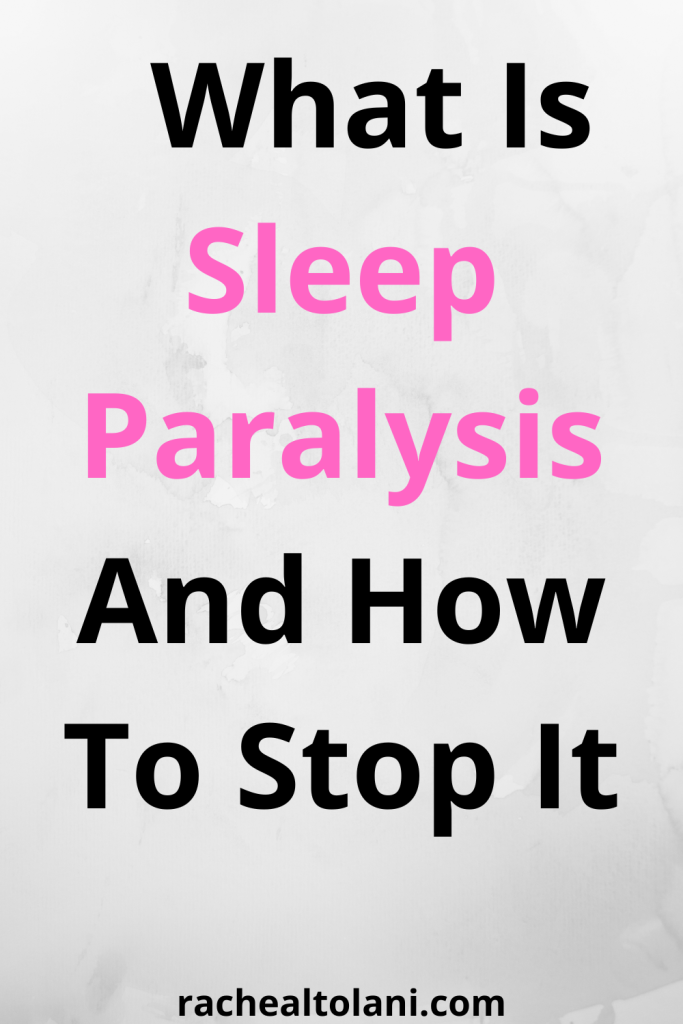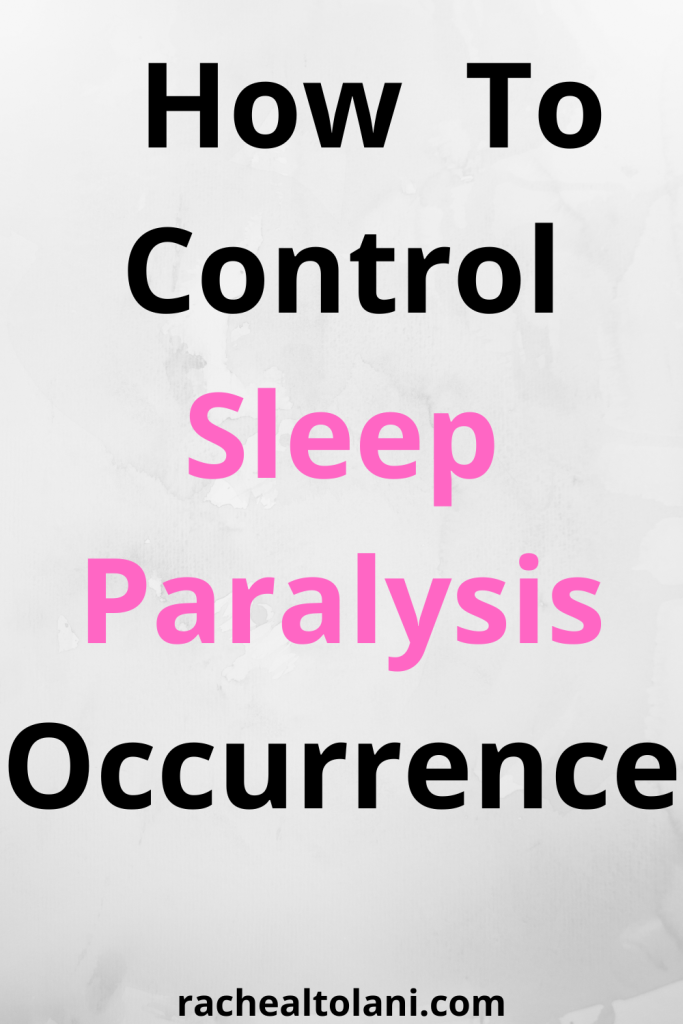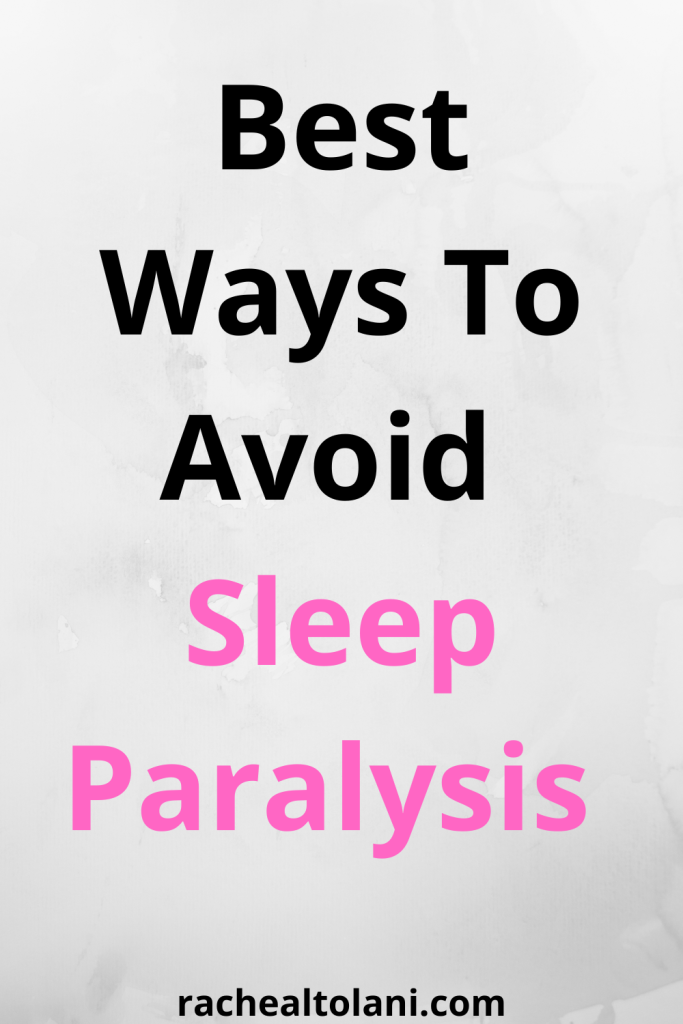Sleep paralysis is a phenomenon characterized by a temporary inability to move or speak while falling asleep or waking up. During an episode of sleep paralysis, a person is aware of their surroundings and may even be conscious of what’s happening, but they are unable to move their body or vocalize. However, what is sleep paralysis and its signs can not be overlooked.
This condition can be accompanied by vivid and sometimes frightening hallucinations.
Here are some key points to understand about sleep paralysis.
Muscle Atonia
Sleep paralysis occurs during the transition between sleep stages, specifically when a person is either falling asleep (hypnagogic or predormital sleep paralysis) or waking up (hypnopompic or postdormital sleep paralysis). During these transitions, the body experiences a state of muscle atonia, where the muscles are temporarily paralyzed to prevent acting out dreams and sleepwalking. In sleep paralysis, this paralysis persists for a brief period after waking up or before falling asleep.
Hallucinations
Sleep paralysis often involves vivid and sometimes disturbing hallucinations. These hallucinations can be visual, auditory, or even tactile. People may report seeing shadow figures, hearing voices, or feeling a sense of pressure on their chest, which can be accompanied by intense fear.

Duration
Episodes of sleep paralysis typically last for a few seconds to a couple of minutes. While the person is unable to move or speak during this time, they can usually breathe and blink their eyes.
Triggers
Sleep paralysis can be triggered or exacerbated by various factors, including sleep deprivation, irregular sleep schedules, stress and anxiety, narcolepsy, and sleep disorders like sleep apnea.
It’s important to note that while sleep paralysis can be a frightening experience. It is generally not harmful, and understanding its causes and triggers can help individuals manage and reduce the occurrence of episodes. If you or someone you know experiences sleep paralysis regularly and it significantly impacts daily life, seeking professional guidance is advisable.
How to control sleep paralysis
While you cannot completely eliminate sleep paralysis, there are several strategies you can employ to reduce its frequency and manage its impact.

Here are some tips on how to stop or alleviate sleep paralysis:
Improve Sleep Hygiene
- Maintain a consistent sleep schedule by going to bed and waking up at the same time every day, even on weekends.
- Create a comfortable sleep environment with a dark, cool, and quiet room.
- Avoid stimulating activities before bedtime, such as using electronic devices or consuming caffeine or alcohol.
Manage Stress and Anxiety
- Practice relaxation techniques like deep breathing, progressive muscle relaxation, or meditation to reduce stress and anxiety.
- Identify and address sources of stress in your life, and consider talking to a therapist or counselor if needed.
Limit Sleep Disruptors
- Avoid heavy meals and excessive fluids close to bedtime to reduce the likelihood of waking up during the night.
- Limit exposure to screens (phones, tablets, computers) before bedtime as the blue light emitted can interfere with sleep.
Sleep Position
- Some individuals find that changing their sleep position can reduce the frequency of sleep paralysis episodes. Experiment with sleeping on your side instead of your back.
Avoid Stimulants
- Reduce or eliminate the consumption of caffeine and alcohol, especially in the hours leading up to bedtime.
Regular Exercise
- Engage in regular physical activity, but avoid strenuous exercise close to bedtime. Regular exercise can help improve sleep quality.
Maintain a Sleep Journal
- Record your sleep patterns, including when sleep paralysis episodes occur and any associated factors. This can help identify triggers or patterns.
Consult a Healthcare Professional
- If sleep paralysis persists or is causing significant distress, consult a healthcare provider or sleep specialist. They can assess your situation and recommend appropriate treatments or interventions.
- If an underlying sleep disorder, such as sleep apnea or narcolepsy, is suspected, they may recommend diagnostic tests and treatments specific to that condition.
Medications
- In some cases, healthcare professionals may prescribe medications to manage sleep disorders or reduce the frequency of sleep paralysis episodes. These medications should only be used under the guidance of a medical professional.
- Generally, sleep paralysis is not a sign of a severe medical condition, and treatment is not required. However, addressing underlying sleep problems or stress through improved sleep hygiene, stress management techniques, and maintaining a regular sleep schedule may help reduce the frequency of episodes.
It’s important to remember that while these strategies can help reduce the occurrence of sleep paralysis, they may not eliminate it entirely. Sleep paralysis is a relatively common phenomenon, and many people experience it at some point in their lives. By improving your overall sleep hygiene and managing stress. You can often minimize its impact and make it less distressing when it does occur.

Also read:


I have been reading all the signs of him cheating and I truly believe he is but, I’ve asked him but he gets so defensive and the name-calling comes out and then he expects me cheating, so, therefore, he never gives me a yes or no answer is always an argument, I’ve even noticed him buying me gift then normal, following me on social media, he even put a camera inside and out he says it’s for safety but I believe so he knows if I’m home or not and freaks out if they get turned off, thank to kelvinethicalhacker@gmail.com, he will grant you access to his phone to see what is happening in my back without consent, he did that for me, am very grateful to find out. you can text kelvin whatsApp +1(341)465-4599..